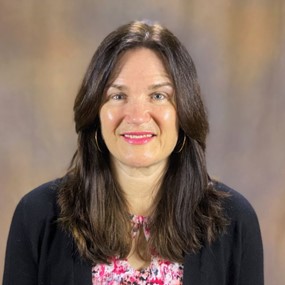Office Hours
By Appointment
Education
PhD, Graduate Center, City University of New York
Research Interests
language pedagogy from beginning levels to advanced content courses; literature of the 19th and 20th centuries, including Modern Austrian literature, Czech-German literature
Publications
- “Telling a Good Story: Proficiency-based Teaching, Advanced-level literary discussions, and Social Justice.” Die Unterrichtspraxis/Teaching German. 55.1 (2022): 41-58.
- “‘Die Grenzen des Sagbaren’? H.G. Adler (on) Writing Literature After the Shoah.” Humanities 10.2 Special Issue: The Literary Response to the Holocaust (2021). Ed. David Patterson. https://doi.org/10.3390/h10020063
- “Beyond Cash Value: Promoting Real-World Competence in the Global Turn.” Die Unterrichtspraxis/ Teaching German. 53.1 (2020): 82-98. http://dx.doi.org/10.1111/tger.12120
- "‘Farben, die es auf dieser Welt nicht gibt’: Remembering Reality in Lenka Reinerová’s Late Prose.” New Perspectives on Contemporary Austrian Literature and Culture. Ed. Katya Krylova. Oxford, UK: Peter Lang, 2018: 347-72.
- “Note to Self? Postmodern Criminality and (Feminist) Consciousness in Eva Rossmann’s Freudsche Verbrechen.” Women in German Yearbook 31 (2015): 122-46.
- “Guidelines’ for Future Professionals: A Case for Graduate Training in Assessment.” Taking Stock of German Studies in the United States: The New Millennium. Eds. Carol Anne Costabile-Heming and Rachel J. Halverson. Rochester, NY and Suffolk, UK: Camden House, 2015: 226-48.
- “Full Steam Ahead!’ Technology, Mobility and Human Progress in Ottilie Assing’s Reports from America.” German Women Writers and the Spatial (Re)Turn: A New Perspective. Eds. Carola Daffner and Beth Muellner. Berlin/Boston: DeGruyter, 2015:21-39.
- “What’s In Your Bag? ‘Freudian Crimes‘ and Austria’s Nazi Past in Eva Rossmann’s Freudsche Verbrechen.” Tatort Germany: The Curious Case of German-Language Crime Fiction. Eds. Lynn Kutch and Todd Herzog. New Jersey: Camden House, 2014: 155-74.
- “A Progressive Traditionalist. Ernst Schönwiese as a Literary Critic.” Proceedings of the International Ernst Schönwiese Symposium. Ed. Robert Weigel. Francke: Tübingen, 2012: 63-89.
- Enlightened Reactions: Emancipation, Gender, and Race in German Women's Writing. Oxford, Bern, Berlin, Frankfurt a.M., New York, Vienna: Peter Lang, 2011.
- "'Bridging the Gap' Within a Class: Managing a Range of Proficiency Levels in a Third-Year German Course." Die Unterrichtspraxis/Teaching German. 42.2 (2009): 141-51.
- "A 'Daughter of the Occident' Travels to the 'Orient': Ida von Hahn-Hahn's Gräfin Faustine and Orientalische Briefe." Women in German Yearbook 24 (2008): 26-48.
Courses Taught
- FLGR 1010/2010: Elementary and Intermediate German
- FLGR 3010: Beginning German Comp & Conversation
- FLGR 3020: Intermediate German Comp & Conversation
- FLGR 3100: Introduction to German Literature
- FLGR 3120: Culture and Civilization
- FLGR 4160: Contemporary German Literature
